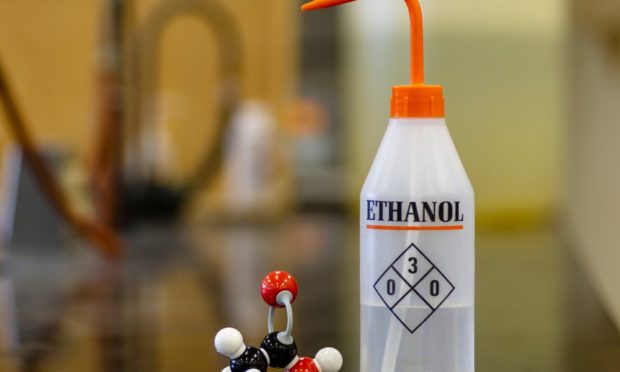Whisky expert Brian Townsend raises a glass to drinkable ethyl alcohol.
When we hear the word alcohol, we tend to think instantly of the one we drink.
But that is just one of a big family of alcohols, all of which are widely used in the chemical and pharmaceutical industries and are among the most useful, and used, organic compounds known to humankind.
Drinking alcohol is ethyl alcohol (C2H5OH) and the only one of the family that is safe, or relatively safe, to drink—all the others are either toxic or lethal.
That said, many are widely used as solvents in everything from cleaning fluids to detergents to inks to skin lotions. Some can now be found in biodiesels and other liquid fuels.
Also, palatable compounds derived from various alcohols are used in processed foods, sweets and perfumes.
In a nutshell, alcohols are the most basic hydrocarbons (methane, ethane, propane, butane, etc) with an oxygen atom wedged between a carbon and one of the hydrogen atoms.
That transforms them from gases to liquids at normal temperatures and gives them a new name—methyl, ethyl, isopropyl and butyl alcohols and many more.
Methyl and ethyl alcohols (known as methanol and ethanol) exist in only one form, but the “longer” ones, with more carbon atoms, exist in different variants, or isomers, depending on the oxygen atom’s location.
During malt fermentation, when sugar is changed to ethanol, tiny amounts of other alcohols are also formed in the wash but, as they mostly have higher boiling points that ethanol, they stay behind during distillation and remain in the pot ale.
However, in grain distilleries, the other alcohols, generally termed fusel oil, condense at a different level in the column still and are piped off and supplied to the chemical industry.
However, by far the most important alcohol is ethanol—among other things, it is the main component of all the hand sanitisers we have been using during months of the Corona crisis.
That said, all other alcohols have their specific uses—for instance, isopropyl alcohol is near-universally used for cleaning electrical and electronic components.
Perversely, toxic alcohols are used to “denature” industrial ethanol to ensure people don’t drink it. However, in Brazil, filling station pumps dispense ethanol—but many people also fill a jerry can for home consumption.
More in this series:











